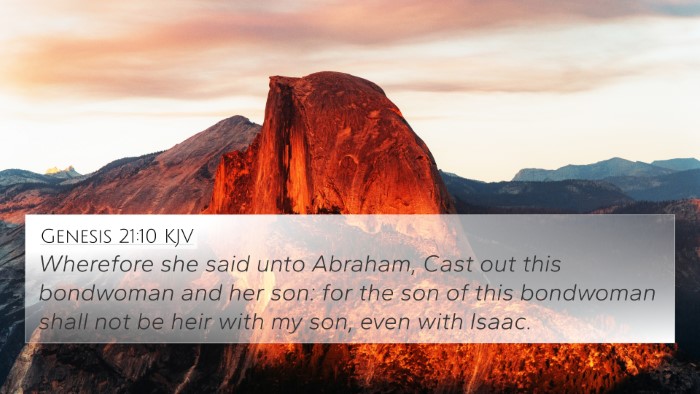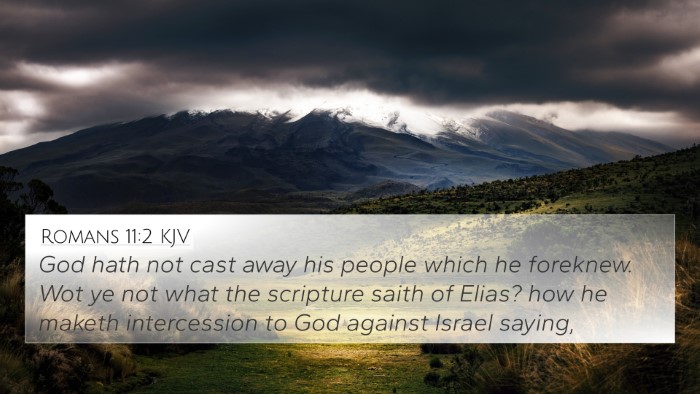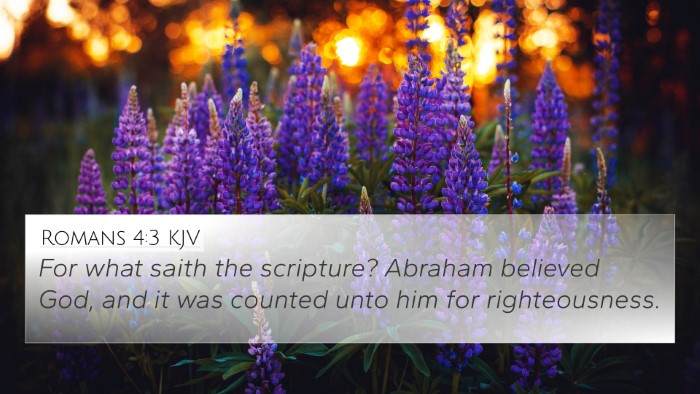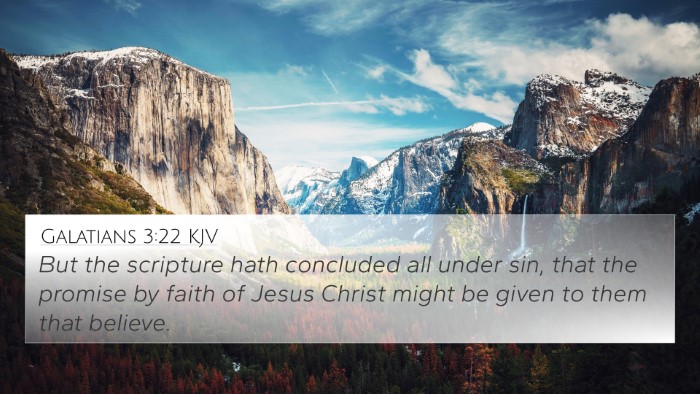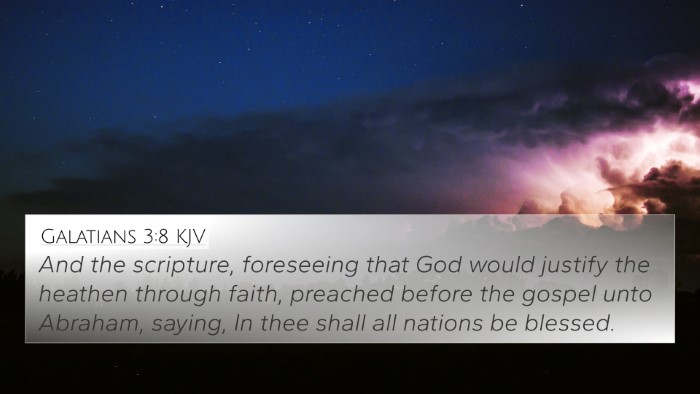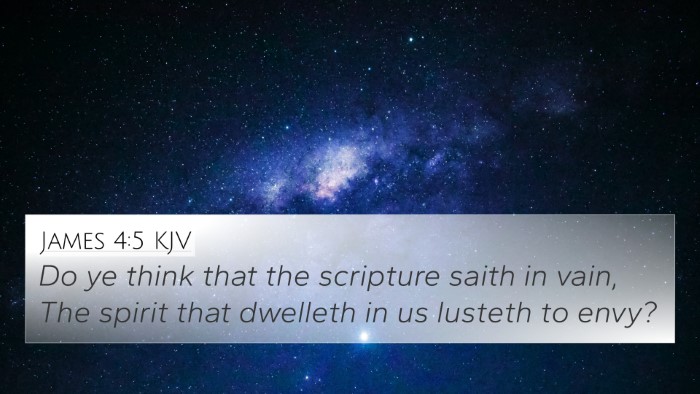Galatians 4:30 states: "Nevertheless what saith the scripture? Cast out the bondwoman and her son: for the son of the bondwoman shall not be heir with the son of the freewoman." This verse emerges in the context of Paul's profound argument regarding the covenant promises and the nature of true freedom found in Christ. The significance of this verse can be richly explored through various public domain commentaries by Matthew Henry, Albert Barnes, and Adam Clarke.
Contextual Understanding
This verse draws from the historical account of Abraham's two sons, Isaac and Ishmael, where Isaac was born of Sarah (the freewoman) and Ishmael of Hagar (the bondwoman).
Here, Paul references this profound allegory to illustrate the distinction between the old covenant of the law and the new covenant of grace.
The allegorical use emphasizes that believers in Christ are heirs to the promises of God, which cannot coexist with the legalistic bondage represented by Ishmael.
Paul's Argument
Paul addresses the Galatian believers who were tempted to revert to the law due to Judaizers' influence. In doing so, he aims to highlight that the true inheritance of God's promises belongs not to those who rely on the law (represented by Hagar) but to those who embrace faith and grace (represented by Sarah).
Key Insights from Commentaries
-
Matthew Henry:
Henry emphasizes that this casting out represents the separation of the covenant of grace from the covenant of works. It is a decisive action that symbolizes the rejection of legalism in favor of a faith-oriented relation with God.
-
Albert Barnes:
Barnes elucidates that Paul is using this historical narrative to bolster his argument against the bondage of the law. The bondwoman—Hagar—represents the Law, while the freewoman—Sarah—represents grace through Jesus Christ.
-
Adam Clarke:
Clarke points out that the phrase "Cast out" reflects God's intention to delineate between those under law and those under grace. He articulates the urgency for believers to recognize their identity as freeborn heirs.
Connections Between Bible Verses
This verse serves as a pertinent link to several other Biblical texts demonstrating the theme of freedom in Christ versus the bondage of the law. Below are some cross-references:
- Genesis 21:10-14: The original account of Sarah demanding the expulsion of Hagar and Ishmael.
- Romans 8:1-2: A declaration of no condemnation for those in Christ Jesus, reinforcing freedom from the law.
- Galatians 5:1: An exhortation to stand firm in the freedom Christ provides and not be entangled again in a yoke of bondage.
- Hebrews 8:6-7: Discusses the superiority of the new covenant over the old, aligning with Paul’s teaching in Galatians.
- 2 Corinthians 3:6: Emphasizes the Spirit giving life, contrasting legalism’s death.
- John 8:36: "If the Son therefore shall make you free, you shall be free indeed," affirming the liberty found in Christ.
- 1 Peter 1:4: Offers an inheritance that is incorruptible and reserved in heaven, paralleling the theme of being heirs of the promise.
Theological Implications
The implications stemming from Galatians 4:30 are profound in understanding the nature of Christian salvation and the inheritance believers receive.
This passage reiterates the distinction between those who seek to achieve righteousness through the law and those who receive it through faith in Christ Jesus.
Conclusion
In Galatians 4:30, Paul is not merely recounting a historical narrative but rather recontextualizing it to underscore a critical doctrinal truth: that in God's redemptive plan, one must forsake the bondage of legalism to embrace the freedom and inheritance available through faith in Christ.
Further Study on Cross-Referencing Methods
Utilizing tools for Bible cross-referencing enhances one’s understanding of connecting themes throughout scripture.
- Bible Concordance: A tool that lists words found in the Bible, allowing for cross-referencing specific themes or keywords.
- Cross-Reference Bible Study: Engaging with multiple scriptures on a theme or topic yields deeper insight.
- Bible Reference Resources: Guides that categorize verses by themes, helping with sermon preparation and personal study.



